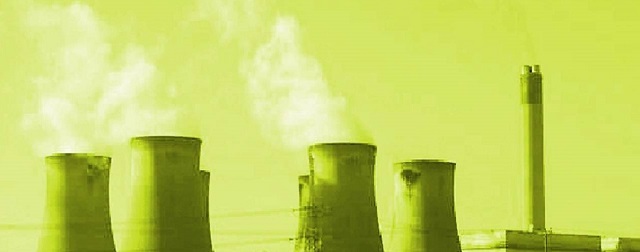The refusal by the European Parliament to freeze the auctions of a portion of the CO2 emission quotas is a major failure for the EU’s supposed environmental leadership. A slight majority of MEPs said NO to the Commission proposal, which aimed to boost the price of the quotas, which had fallen from 40 Euros to four Euros each. In the Commission’s view, these low prices would not stimulate the investments and innovation in green technology that the ETS was intended to produce.
The EU Emission trading System (ETS), which entered into force in 2005, is the cornerstone of the EU strategy to reduce CO2 emissions. This system sets an overall emissions ceiling which is gradually being reduced (by 2020 emissions from industry sectors covered by the ETS will be 21% lower than in 2005). Beneath this ceiling, companies receive or buy credits auctioned by member states and may then sell on any unused credits. Environmental associations see the Parliament’s vote as a huge defeat in the fight against climate change. Greenpeace EU climate policy director Joris den Blanken, said the vote marked “an historic failure” for the environment. With quota prices so low the European enterprises have no incentive to invest in a cleaner production and innovation as it is not economically viable.
On the other side, we are in the midst of an economic crisis and recession. Industries have lobbied strongly against the freeze because they were afraid of a jump in energy prices during the worst economic period in years. MEPs who voted against the proposal advocated that the freeze, “backloading” as dubbed, fell too short in bolstering the ETS system which in their views needs a far larger boost.
This might be reasonable, even though it does sounds more like an excuse. However, innovation and promoting green technology are too often seen as a problem instead of an opportunity in tackling the crisis. Investing in renewable energy and greener production is the only way to enter new markets and boost sustainable growth. On the contrary, sticking to old fashioned industries and manufacturing means not preparing for the challenges of the future.
With the EP vote, the EU has confirmed its intention to consign tackling global warming to the waiting room, despite the statements by José Barroso about standing up and leading the world in the fight against climate change. Yet none of this is a surprise for those who attended the climate conference in Copenhagen in 2009, where the EU appeared divided and confused. Already the main EU Member States such as Germany have dropped their ambitions to create a greener industrial production, freezing and capping incentives for green electricity generators amid concern over growing energy costs.
“I deeply regret today’s vote. It is the beginning of the repatriation of climate policy,” said EP rapporteur Matthias Groote (German, Socialist). He is right to regret, as this is could signal the first step in a major retreat from the EU’s environmental commitments. The same day the parliament approved a controversial report which suspended, for at least one year, the extension of the ETS system to intercontinental flights. MEPs said that they prefer to attain a global agreement with global partners, such as the US and China, that firmly opposed this extension. “We want a worldwide convention”, the EP rapporteur said. It seems more likely that the EU has given up another green battle.






Be the first to comment on "The EU Emission Trading System needs reboot to win fight against pollution"